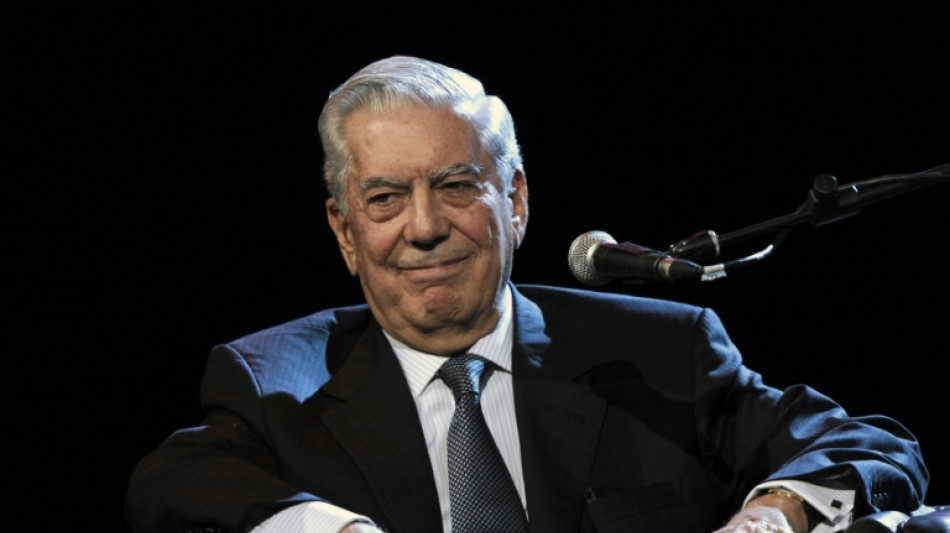
-
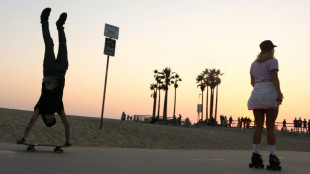 Universal Studios, Venice Beach to host LA 2028 events
Universal Studios, Venice Beach to host LA 2028 events
-
IOM chief urges world to step up aid for Haiti
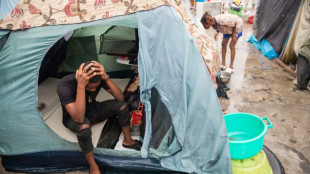
-
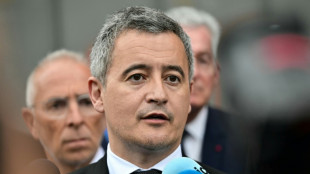 French prisons hit by mystery arson and gunfire attacks
French prisons hit by mystery arson and gunfire attacks
-
Alcaraz follows Ruud into Barcelona Open last 16

-
 Stocks rise on bank earnings, auto tariff hopes
Stocks rise on bank earnings, auto tariff hopes
-
Trump showdown with courts in spotlight at migrant hearing
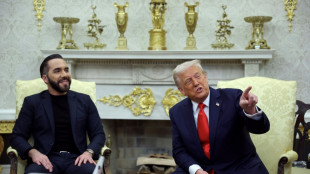
-
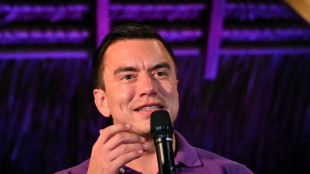 Ecuador electoral council rejects claims of fraud in presidential vote
Ecuador electoral council rejects claims of fraud in presidential vote
-
Russia jails four journalists who covered Navalny
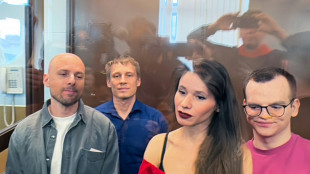
-
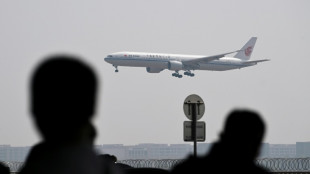 Trump says China 'reneged' on Boeing deal as tensions flare
Trump says China 'reneged' on Boeing deal as tensions flare
-
Trump eyes near 50 percent cut in State Dept budget: US media
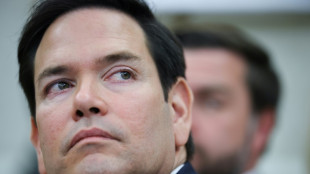
-
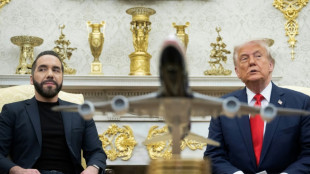 Trump says would 'love' to send US citizens to El Salvador jail
Trump says would 'love' to send US citizens to El Salvador jail
-
'Unprecedented' Europe raids net 200 arrests, drugs haul
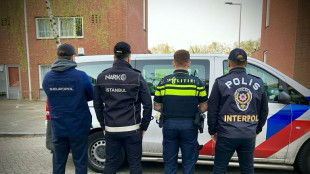
-
 Everyone thinks Real Madrid comeback 'nailed-on': Bellingham
Everyone thinks Real Madrid comeback 'nailed-on': Bellingham
-
NATO's Rutte says US-led Ukraine peace talks 'not easy'
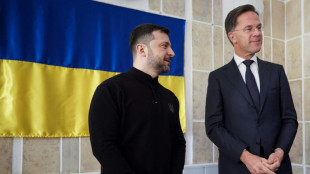
-
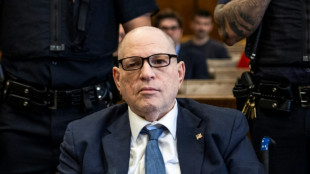 Harvey Weinstein New York retrial for sex crimes begins
Harvey Weinstein New York retrial for sex crimes begins
-
More than 10% of Afghans could lose healthcare by year-end: WHO
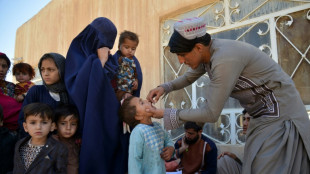
-
 Stocks rise as auto shares surge on tariff break hopes
Stocks rise as auto shares surge on tariff break hopes
-
Facebook chief Zuckerberg testifying again in US antitrust trial
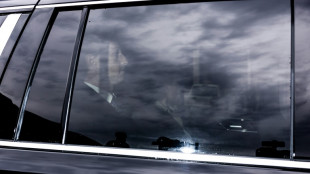
-
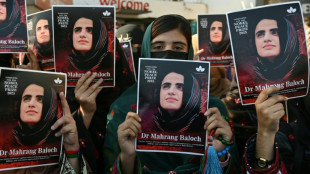 Pakistan court refuses to hear Baloch activist case: lawyers
Pakistan court refuses to hear Baloch activist case: lawyers
-
Inzaghi pushing Inter to end San Siro hoodoo with Bayern and reach Champions League semis
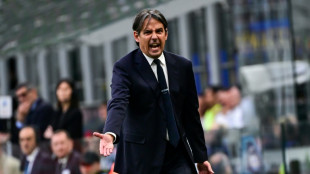
-
 Arsenal's Odegaard can prove point on Real Madrid return
Arsenal's Odegaard can prove point on Real Madrid return
-
China's Xi begins Malaysia visit in shadow of Trump tariffs
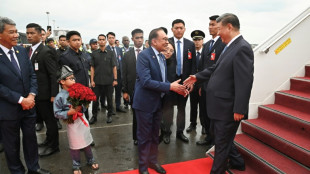
-
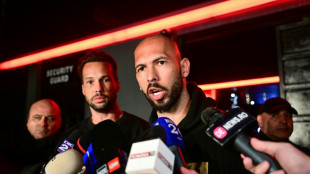 Andrew Tate accusers suing for 'six-figure' sum, UK court hears
Andrew Tate accusers suing for 'six-figure' sum, UK court hears
-
Macron to honour craftspeople who rebuilt Notre Dame
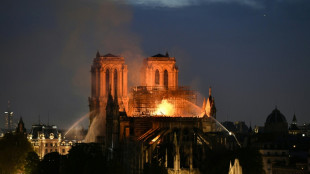
-
 Van der Poel E3 'spitter' facing fine
Van der Poel E3 'spitter' facing fine
-
Khamenei says Iran-US talks going well but may lead nowhere
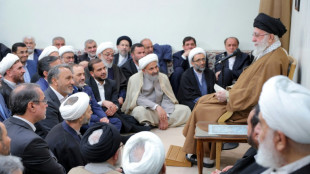
-
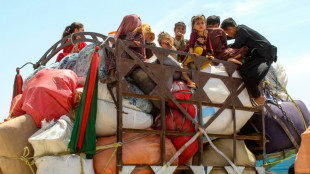 Nearly 60,000 Afghans return from Pakistan in two weeks: IOM
Nearly 60,000 Afghans return from Pakistan in two weeks: IOM
-
Auto shares surge on tariff reprieve hopes

-
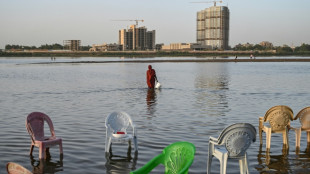 Sudan war drains life from once-thriving island in capital's heart
Sudan war drains life from once-thriving island in capital's heart
-
Trump trade war casts pall in China's southern export heartland
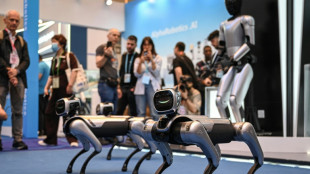
-
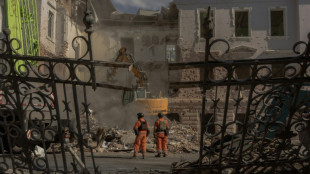 Ukraine's Sumy prepares to bury victims of 'bloody Sunday'
Ukraine's Sumy prepares to bury victims of 'bloody Sunday'
-
Iraq sandstorm closes airports, puts 3,700 people in hospital

-
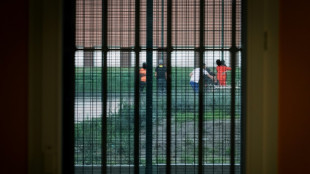 French prisons targeted with arson, gunfire: ministry
French prisons targeted with arson, gunfire: ministry
-
Pandemic treaty talks inch towards deal
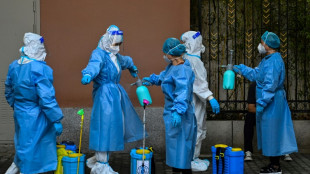
-
 Employee dead, client critical after Paris cryotherapy session goes wrong
Employee dead, client critical after Paris cryotherapy session goes wrong
-
Howe will only return to Newcastle dugout when '100 percent' ready

-
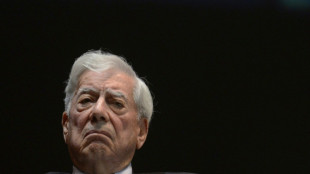 Journalist recalls night Mario Vargas Llosa punched Gabriel Garcia Marquez
Journalist recalls night Mario Vargas Llosa punched Gabriel Garcia Marquez
-
Sudan marks two years of war with no end in sight
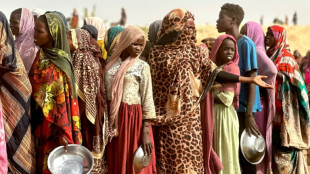
-
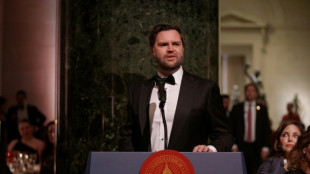 Vance urges Europe not to be US 'vassal'
Vance urges Europe not to be US 'vassal'
-
China tells airlines to suspend Boeing jet deliveries: report
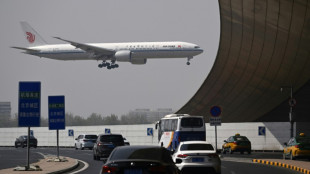
-
 Stocks rise as stability returns, autos surge on exemption hope
Stocks rise as stability returns, autos surge on exemption hope
-
Harvard sees $2.2bn funding freeze after defying Trump
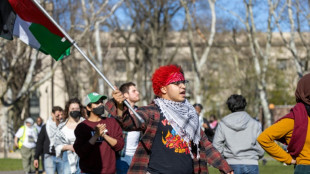
-
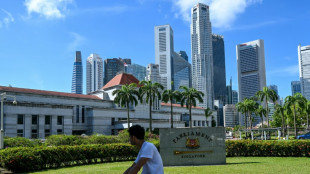 'Tough' Singapore election expected for non-Lee leader
'Tough' Singapore election expected for non-Lee leader
-
Japan orders Google to cease alleged antitrust violation

-
 Stocks rise as stability returns, autos lifted by exemption hope
Stocks rise as stability returns, autos lifted by exemption hope
-
Malawi's debt crisis deepens as aid cuts hurt
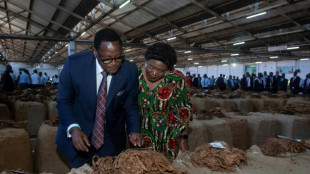
-
 Danish brewer adds AI 'colleagues' to human team
Danish brewer adds AI 'colleagues' to human team
-
USAID cuts rip through African health care systems
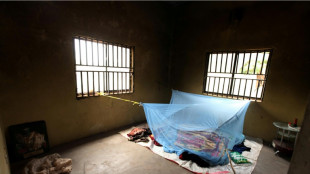
-
 Arsenal target Champions League glory to save season
Arsenal target Champions League glory to save season
-
Kane and Bayern need killer instinct with home final at stake


Vargas Llosa, last of Latin America's literary golden generation
Nobel laureate Mario Vargas Llosa was the last survivor of a golden generation of Latin American literary giants, his writing exploring universal themes often set outside his native Peru.
Admired for his depiction of social realities but criticised within Latin American intellectual circles for his conservative positions, Vargas Llosa -- who died Sunday at age 89 -- was a leading light of the "boom" generation that included greats like Gabriel Garcia Marquez and Julio Cortazar.
Winner of the 2010 Nobel Prize for Literature, Varga Llosa passionately believed writers should be involved in civil society.
"We Latin Americans are dreamers by nature and we have trouble telling the difference between the real world and fiction," he said.
"That is why we have such good musicians, poets, painters and writers, and also such horrible and mediocre rulers."
But he courted controversy over his support for the war in Iraq and was a passionate admirer of Britain's "Iron Lady" prime minister, Margaret Thatcher.
Author of a vast body of work, spanning historical novels, erotic romances, crime novellas, light-hearted comedies, plays, memoirs and essays, Vargas Llosa also kept his hand in current affairs by working as a journalist.
Unlike Garcia Marquez and other Latin American greats, he rarely strayed into magical realism, his style marked by graphic descriptions of murder, rapes and other violence, perhaps harking back to his days as a crime reporter in Peru's capital Lima when he was just 16.
"A writer must never turn into a statue. I have never liked the idea of a writer stuck in his library, cut off from the world like Proust was," he told AFP in an interview.
"I need to keep a foothold in reality. That's why I do journalism."
- Military school trauma -
Born in Arequipa in southern Peru on March 28, 1936 to a single mother, Vargas Llosa was taken to Bolivia as a baby, only returning a decade later when he met his father for the first time.
It was not a happy relationship, his father being "very authoritarian and severe", Vargas Llosa said in 2019.
"I lost my innocence and discovered loneliness, authority, adult life and fear.
"My salvation was reading good books, taking refuge in worlds... where I could feel free. And I became happy again."
At 14, his father sent him to Lima's Leoncio Prado Military Academy, an experience which he described as "traumatic", seeking solace in the world of books and writing.
On leaving, he worked at La Cronica tabloid before studying law and literature at San Marcos University while dictator Manuel Odria was in power, becoming very politically active.
- A scandalous marriage -
At 19, Vargas Llosa married his aunt Julia Urquidi. Although not a blood relative, she was a divorcee 10 years older than him and it was socially scandalous.
She encouraged his writing and when they moved to Madrid, he began his first novel "The Time of the Hero" (1963) based on his military academy experience, which he later finished in Paris.
Their decade-long marriage inspired his 1977 novel "Aunt Julia and the Scriptwriter".
He worked for a period in Paris as a journalist for Agence France-Presse (AFP) and Radio Television Francaise.
After his marriage broke up in 1964, Vargas Llosa married his cousin Patricia Llosa and had three children.
The couple separated in 2015.
- 'Unreserved admiration' for Thatcher -
All of his early novels are set in Peru, among them "The Green House" (1966), "Conversation in the Cathedral" (1969), and "Captain Pantoja and the Special Service" (1973).
Later writings were set further afield: "The War of the End of the World" (1981) tackled a military conflict in late 1890s Brazil, while "The Feast of the Goat" (2000) portrayed the 1961 assassination of Dominican dictator Rafael Trujillo.
After his Nobel win, he published "The Dream of the Celt" about Roger Casement, a gay British consul who wrote a 1904 report about colonialism's abuses in the Congo before becoming an Irish nationalist.
Like most of Latin America's intelligentsia in the early 1960s, Vargas Llosa initially supported Fidel Castro's leftist revolution, but later grew disillusioned, becoming an advocate of free-market capitalism whose political idol was Thatcher.
After her resignation in 1990, Vargas Llosa wrote of his "unreserved admiration" for Thatcher, praising her 11-year rule as "the most successful revolution in Europe this century and the one with the most powerful effect on the rest of the world".
The same year he ran for president in Peru representing a conservative coalition but lost to Alberto Fujimori, an unknown academic of Japanese descent.
Disappointed in defeat and upset by the dictatorial turn of Fujimori's regime, Vargas Llosa took Spanish nationality in 1993, angering many Peruvians.
burs/hmw/mg/fg/des
M.Betschart--VB
